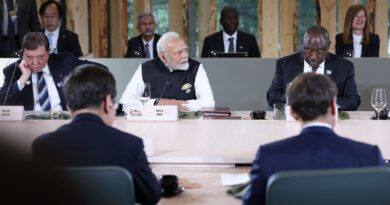Pew Survey: The World On The Edge With China Rising
A recent survey by the Pew Research Centre reveals a significant rise in anti-China sentiments across the globe since the pandemic began. The countries that had the most rise in anti-China sentiment during this time were India, Brazil, and Poland. The survey indicates that perceptions of China are deteriorating abroad, mainly due to its foreign policy decisions, and there is also a lack of confidence in President Xi Jinping.
The survey found that majorities in 15 out of 24 nations hold an unfavourable opinion of China, with Japan and Australia having the highest discontent at 87%. While Brazil’s negativity towards China stands at 48%, India and Poland have a higher proportion, with 67% of their populations expressing unfavourable opinions about China.
Around three-quarters of respondents believe that China neglects the interests of other countries in its foreign policy, and more than half think China interferes in the affairs of other nations to a significant extent.
Among the 24 countries surveyed, only six showed more support for China than criticism. These included Nigeria, Kenya, South Africa, Indonesia, and two Latin American nations.
India stands out as the only middle-income country where a majority holds unfavourable views of China, possibly influenced by the military conflicts along the contested border, referring to the Ladakh and Sikkim border disputes.
Interestingly, despite disapproval of China’s actions, most people acknowledge its technological and military advancements. Chinese technology is considered the best in the world or above average in many countries, except in South Korea. Additionally, China’s investments in developing countries in Africa and Latin America have garnered some goodwill.
The US respondents were particularly critical, with about four-fifths holding a negative view of China. The US and China have been at odds over various issues, leading to restrictions on high-end chip equipment exports and a recent move by China to limit the export of crucial metals used in various industries.
China’s partnership with Russia and its actions in Hong Kong, Tibet, Xinjiang, and Taiwan have also faced widespread criticism. Meanwhile, President Xi’s policies have come under scrutiny, and the recent removal of his handpicked foreign minister, Qin Gang, has added to the uncertainties surrounding his leadership.
Despite these concerns, Xi Jinping is viewed more favourably in certain countries involved in the Belt and Road Initiative, such as South Africa, Nigeria, and Kenya. In these regions, Chinese investment is perceived as beneficial to their economies.
As the world watches China’s actions closely, it is evident that its foreign policy decisions are influencing global perceptions significantly. The challenge for China lies in addressing these concerns and building trust on the international stage.
The global ambitions of China have been the subject of intense scrutiny and varying perceptions on the international stage. China’s rise as a global power and its increasing assertiveness in various arenas have prompted both admiration and concern among nations worldwide.
On the one hand, many countries acknowledge China’s remarkable economic growth and its role as a major player in the global economy. China’s Belt and Road Initiative, aimed at expanding infrastructure and connectivity across Asia, Africa, and Europe, has been seen as a significant contribution to global development and trade. Moreover, China’s advancements in technology and innovation have impressed many, positioning the country as a major player in the digital era.
However, alongside admiration, there are growing concerns about China’s global ambitions and its assertive foreign policy. The country’s territorial claims in the South China Sea and its military buildup in the region have raised tensions with neighbouring countries and drawn international criticism. China’s increasing military assertiveness, coupled with its maritime expansion, has fuelled apprehensions about regional stability and security.
Furthermore, China’s actions in its periphery, such as its treatment of ethnic minorities in Xinjiang and Tibet, have sparked human rights concerns and drawn criticism from the international community. The lack of transparency in China’s political system and restrictions on media and free speech have also fueled suspicions about the country’s intentions and long-term goals.
China’s growing influence in global institutions and its efforts to shape international norms and rules have also drawn attention. Some view China’s rise as a potential challenge to the existing international order and a shift in the balance of power. The competition for influence between China and the United States, often referred to as the “Thucydides Trap,” has raised fears of potential conflict and instability.
The perception of China’s global ambition varies among nations and is shaped by geopolitical interests, economic ties, historical experiences, and domestic political considerations. As China continues to expand its presence on the world stage, understanding and managing the diverse perceptions of its global ambition will be crucial in shaping the future of international relations and the global order.




